Cognitive Experience
powered by rTMS
Treatment that Heals the Mind
b:Rare rTMS offers a revolutionary treatment that is designed to improve executive function
“I felt a change after the first two treatments and immediately knew this was going to work!”
Linden King
Former NFL Linebacker


rTMS identifies the optimal operating frequency unique to each person’s brain, and identifies those areas of the brain functioning below optimal frequency. Using this information, the software recommends a treatment protocol for the rTMS provider to consider. By spacing EEG’s between treatments, the effectiveness of a treatment protocol can be objectively measured, and the provider has a tool to assist with adjustments to the treatment plan.

What can rTMS Treat?
Individualized Transcranial Magnetic Stimulation (rTMS) is a ground-breaking therapeutic approach to improving cognitive function.
- Cognitive Decline Due to Aging
- Sleep Disorders
- Traumatic Concussion
- Attention Issues
- Menopause
- COVID Brain Fog
- Executive Functions
- Early Onset Dementia
- Tinnitus
- Short-Term Memory Loss
- Migraines
- Athletic Performance
- Balance Problems
- Other Neurocognitive Brain Issues
Frequently Asked Questions
How much time is there between treatments?
5-7 days a week of daily treatments is the standard process. If treatment twice a day is approved, there needs to be a three hour break between the first and second treatment. We suggest starting and finishing treatment once you begin.
How many rTMS treatments are needed?
The number of rTMS treatments depends upon the diagnosis, severity of symptoms, and response rate. On average, patients receive once or twice a day treatment 5-7 days per week for at least 4-12 weeks. Some patients report positive results in as few as 4 to 6 treatments.
Is this treatment invasive or painful?
No. You cannot feel this treatment. You can hear the machine once turned on, as well as a ticking noise, but that is it. Some people report feeling tired after treatment.
Are there any risks?
rTMS is well-tolerated. Few patients discontinue treatment because of side effects. Though the risk is extremely small, there have been a few reports of seizures with TMS devices (1 in 3 million). There are no known adverse cognitive (thinking and memory) effects associated with TMS therapy. Additionally, no known long-term adverse effects have been reported with the use of TMS. However, as a relatively new treatment, unforeseen long-term risks may exist. The risks of exposure to TMS during pregnancy are unknown.
How often will I get a progress report?
After each EEG. Progress is tracked through progress reports derived from diagnostic tools and psychometric assessments. This process will occur after every set of 10 treatments. The practitioner will review this progress report with the patient before continuing with another set.


